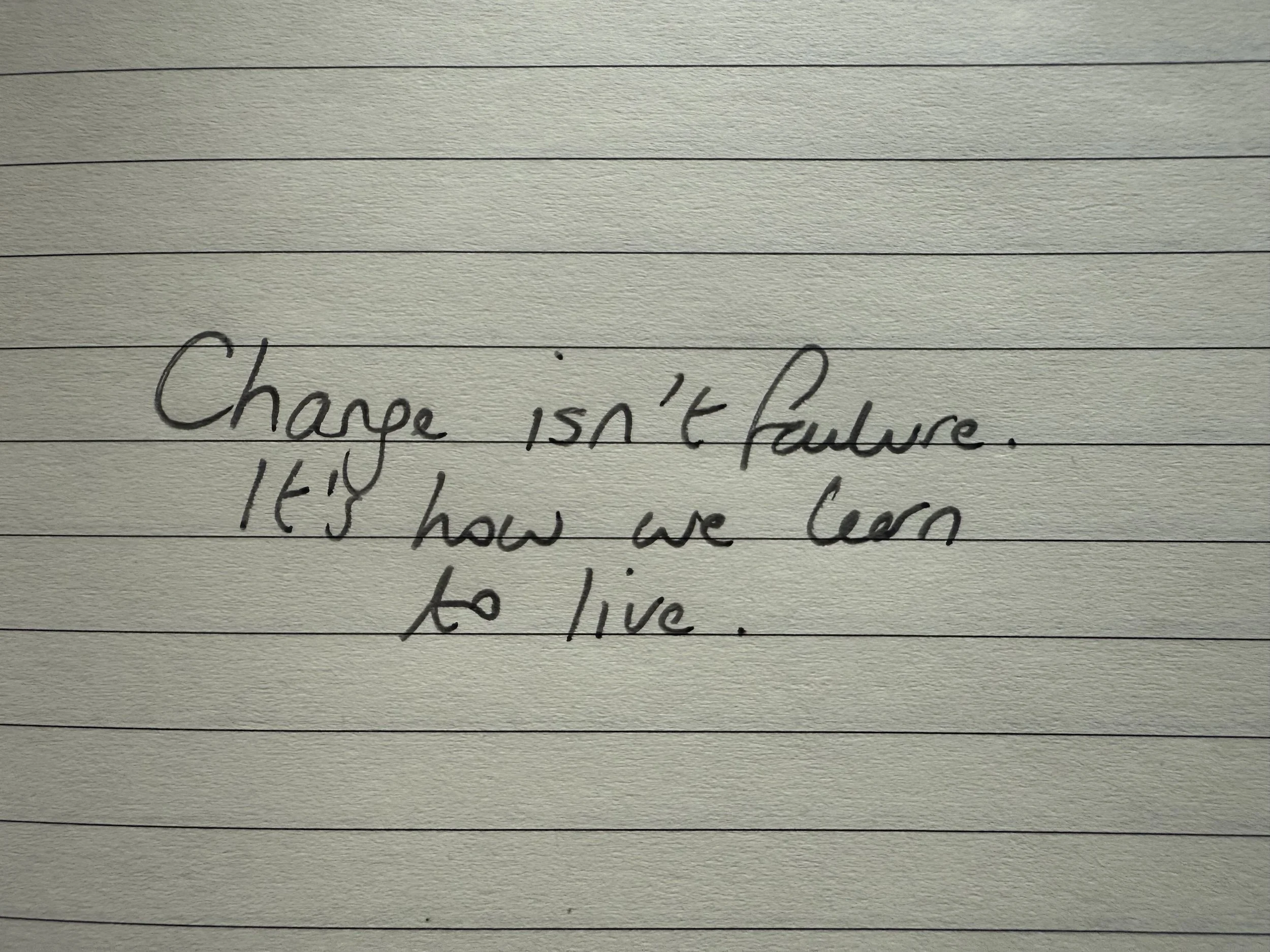Why Schools Should Teach Jazz, Not Classical
In a world obsessed with the straight path - five-year plans, upward graphs, neat progressions - change can feel like collapse.
A career pivot? Backtracking.
A pause to care for someone? Lost momentum.
A gnawing sense that something no longer fits? Maybe you’re just being flaky.
But maybe change isn’t the disruption of life. Maybe it is life.
The rhythms of modern adulthood - especially for women - almost demand recomposition. Parenthood, partnership, caregiving, ambition, reinvention: it’s not a clean sequence. It’s a loop. A layering. A back-and-forth that doesn’t fit neatly on a timeline or CV. And yet, it’s real. It’s alive. And often, it’s where meaning grows.
The challenge isn’t change. It’s staying steady while adapting - staying in conversation with your life as it shifts. Without meaning, change can feel reactive. Meaning gives coherence to what might otherwise feel random.
“We are not what we know but what we are willing to learn.” Mary Catherine Bateson’s line is more than a quote - it’s a posture. The mindset that makes space for growth, not just grit. That turns change into motion, not failure.
This sits at the heart of Composing a Life, Bateson’s portrait of five women whose lives didn’t follow ladders, but loops. They rerouted, rewove, reimagined. They held love alongside work, clarity alongside uncertainty - not perfectly, but meaningfully.
Therapy supports this kind of authorship. Not by rewriting the past, but helping people make sense of it. Reflection isn’t indulgent - it’s a form of emotional literacy. Because if you can’t name your deeper thread, it’s hard to stay grounded when the next change comes.
We often wait until burnout to allow ourselves to recompose. But young people will need this earlier. They’re stepping into a job market shaped by automation and disruption, by roles that didn’t exist five years ago and might not exist five years from now. Their careers won’t be ladders - they’ll be patchworks. Their ability to improvise meaningfully will be their greatest asset.
Instead of asking a 16-year-old what job they want, we could ask: What kind of problems do you want to help solve? What kind of life do you want to build - and how will you know when it’s time to rework it? This is now core curriculum content.
Because in a world this fast, this fractured, and this fluid, the most essential skill isn’t productivity. It’s adaptability with integrity.
Bateson invites us to think like jazz musicians - improvising through life, not because we lack structure, but because we’ve learned how to stay in rhythm as the song evolves.
Change is not failure.
It’s feedback.
It’s movement.
It’s how we learn to live.

